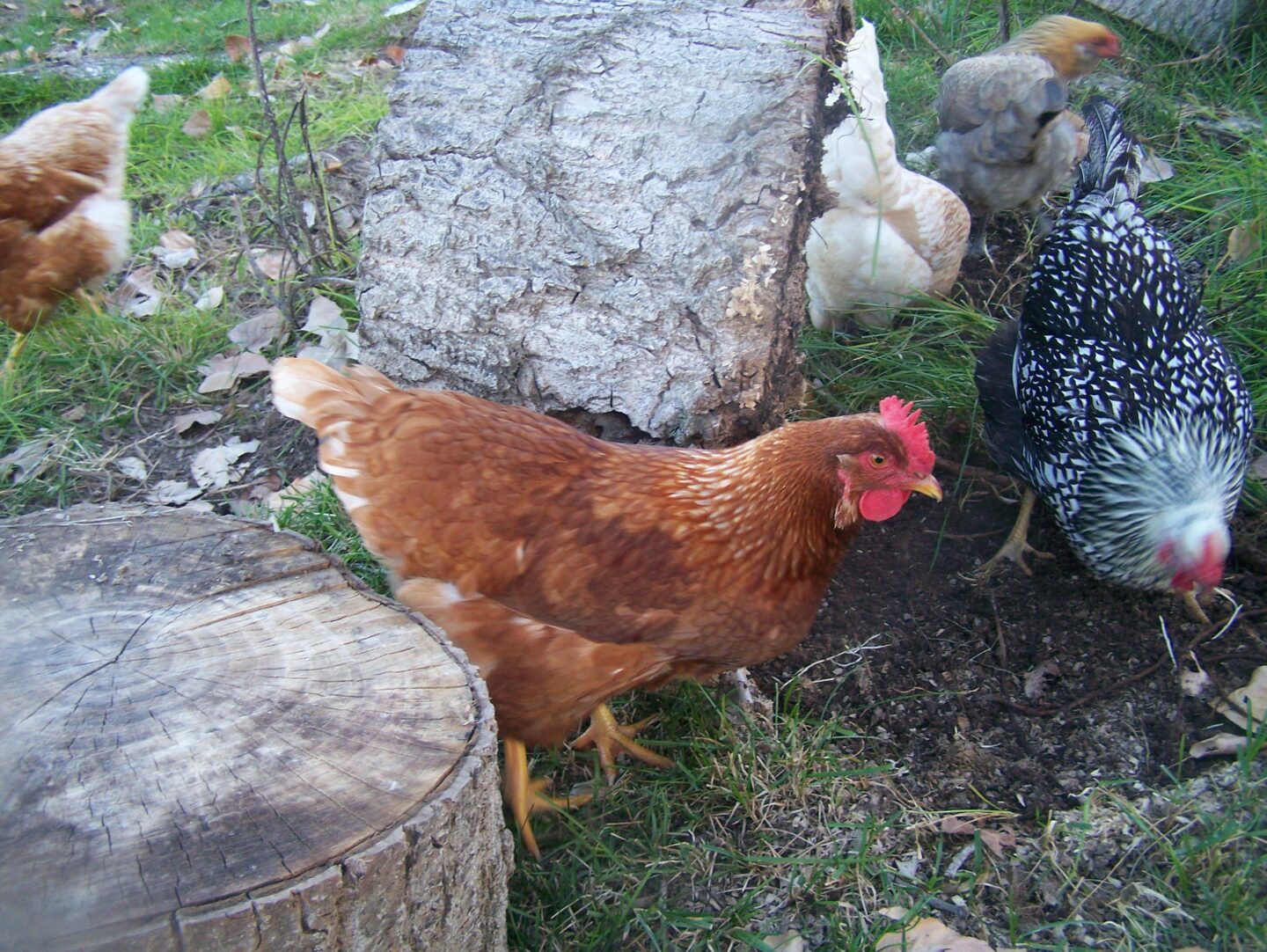The Truth About Chickens and Bugs

There is a common belief that free ranging chickens will rid a yard of pesky insects, snails, slugs and ticks. Many think that a flock of chickens converts pests into eggs, meat, and fertilizer. It is important to remember that chickens are opportunistic omnivores who spend hours combing the yard for edible tidbits. They scratch through leaves, tall grass, and garden mulch looking for bugs. Sometimes they’ll even snatch a fly from the air. Chickens aren’t picky and don’t care whether a newly found morsel is a pest or beneficial earthworm. Insects, worms, seeds, grass, spiders, ticks, and a host of other morsels quickly become lunch.
Turn a few hens into a growing garden and they’ll dine on Japanese beetles, squash bugs, and many other invertebrates. Unfortunately, they will also devour tasty lettuce, chard, spinach and other greens. Chickens love to peck tomatoes just beginning to ripen and immature squash, and they can damage other garden crops.
The trick is knowing when and how to allow chickens access to the garden so they eat the pests and ignore the crop. The simplest way is to let them forage in mid fall after all crops are done for the year. Many pests overwinter as larvae or eggs, and chickens will methodically scratch through remnants of the garden, devouring pests as they go and leaving fertilizer in their wake. This certainly can reduce pest numbers in next year’s garden.
Chickens can also be allowed to forage into growing crops that they tend to not eat or when crops are at a stage of maturity when their fruits or leaves won’t be damaged. For example, chickens rarely bother tomato plants but they love to peck on their nearly ripe reddish fruit. So it’s probably safe to let the birds forage in the tomato patch before ripening fruit is present.
Because chickens don’t distinguish between garden pests and beneficial invertebrates they will dine on beneficial worms and pollinating insects as well as pests, although they probably don’t significantly reduce populations of these gardeners’ friends.
Chickens will eat nearly any invertebrate they can catch, but most of the bugs that bite people, chickens, and other animals are stealthy, fast, or very small, giving chickens less of an opportunity to reduce their numbers than slow moving plant pests. They’ll devour the maggots of pesky flies if they can find them but they have a hard time catching adult biting flies other than an occasional one they snap from the air. Mosquitoes are mostly active when the light is low and chickens are nearly comatose on their roost, so they have a hard time reducing those populations. Hens love to eat ticks, and guineas enjoy them even more. They may reduce the population of larger tick species but likely won’t get all of them.
You should never assume that free ranging chickens render a yard free of disease carrying pests. Wear insect repellent when outside, even in the yard, and conduct a personal tick check before taking a shower.
Letting a flock of chickens forage in a back yard reduces their food bill, as the birds eat a diversity of protein rich insects. When carefully managed they will eat garden pests but may not be as effective in devouring the tiny animals that bite humans and other animals.
